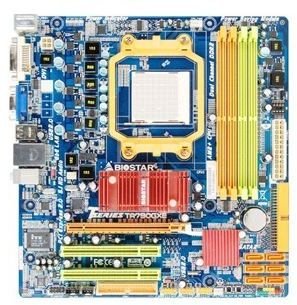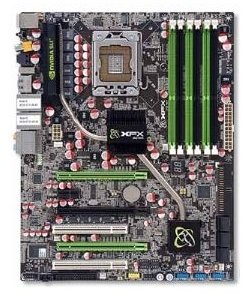Should I Upgrade My Motherboard? Questions to Ask
The modern desktop computer is quite granular meaning that it is made up of many individual parts from different manufacturers. In the early days of home computing, most components were hard wired or soldered onto the system’s motherboard making it impossible to consider upgrading the video card, the processor, or even the motherboard itself.
The motherboard of a computer largely dictates your computer’s capabilities. For example, the chipset (the part where your processor connects) is soldered onto the motherboard meaning that the classes of processor you can run in the machine are limited to those compatible with the chipset. In addition, motherboards ship with a finite number of memory slots. Their number and specifications dictate how much and what kind of memory you can run in your computer.
Although an important part of your computer, the motherboard is but another granular component that is relatively easy to remove and replace, assuming you know how to do it. Before you consider upgrading your computer’s motherboard, ponder these three questions to make sure you are getting what you really want out of your computer.
1 – Do I Have the Expertise to Upgrade My Motherboard?
Although not complicated to the initiated, the inside of a computer can seem like a maze of wires, circuit boards, and power plugs. Without the expert knowledge to take apart and reassemble a computer, you could get yourself into trouble and possibly damage a part or two in the process.
Remember that the motherboard is the most important board in your computer. Just about everything attaches to it in one way or another. If you don’t know where everything goes, you may find it difficult to piece it together once it is all laid out on your kitchen table.
Of course, you could pay someone to install your new motherboard but that would be an added expense lessening the benefit to cost ratio of doing the upgrade in the first place. Before you ponder replacing your motherboard, consider whether you really have the expertise to reassemble your desktop computer.
2 – What Will My New Motherboard Really Do For Me?
This is a utilitarian question where you need to step back and ask yourself whether upgrading your motherboard is really worth the expense and effort. Assuming your motherboard is working correctly and that you are not simply replacing a bad board, there must be something that you expect to gain from an upgraded motherboard.
If you are interested in having eSATA ports in your computer, remember that such technologies can be added without replacing the whole motherboard. The same can said for USB or front audio parts. These technologies can be added to your computer with expansion cards using free PCI and PCIe slots on your current motherboard.
One popular reason for upgrading a motherboard is to take advantage of dual video card setups such as nVidia’s SLI or ATI’s Crossfire technologies. If your current motherboard is not setup for multiple graphics cards, upgrading your motherboard is your only choice.
The point of everything above is this: What will your new motherboard do for you that your old one is not currently doing? If the answer is “very little,” consider that your old motherboard really doesn’t need to be replaced.
3 – Would a New Computer Be a Better Alternative to Upgrading My Motherboard?
Over time, many computer owners become dissatisfied with their computer as it ages and as newer technologies enter the market. Many people want to breathe new life into an aging computer to keep up with the changing technologies. The result can be a one-track mind that only considers an upgrade as an option.
Upgrading a motherboard can be expensive, especially if you have to hire someone to install it. If you really want to take advantage of new computer technologies, ponder that a completely new computer is a better choice to upgrading just the motherboard. You may find that this choice offers you so much more from a cost to benefit point of view.
Remember that even after you upgrade your motherboard, everything about your computer will remain the same; the processor, memory, graphics card, hard drive, etc. will all be the same. In light of that revelation, does a motherboard upgrade really seem like the way to go? Consider that a new computer is really what you want.

Conclusion
Upgrading a desktop computer’s motherboard is tricky business because all of the other components in the computer remain the same. Unless you want to take advantage of some newer technology such as eSATA, USB, or multiple video card setups such as nVidia SLI and ATI Crossfire, you will not experience a major performance boost by simply upgrading the motherboard.
Granted, a new computer would likely be more expensive that just upgrading a motherboard. However, always go back to the benefit to cost ratio of each of your alternatives. You also have the option to do neither, using your current computer until you think it is the right time to abandon it for a new one. Whatever your choice, ponder the alternatives carefully and you are likely to end up with the computer you really want and need.
